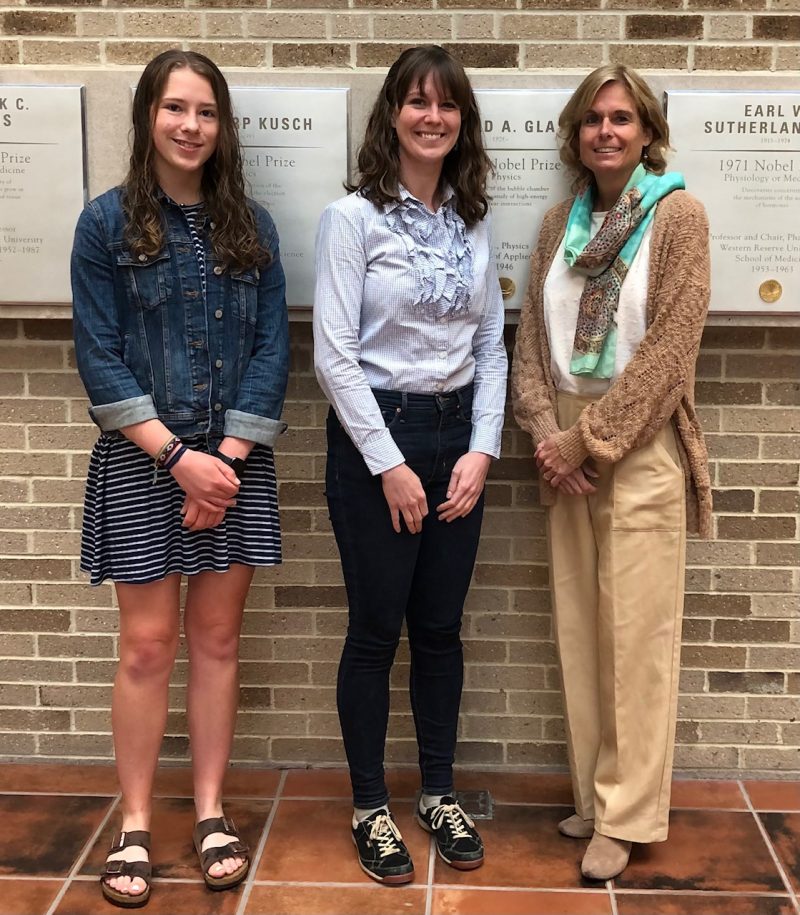Online Learning During the Pandemic
Did online learning during the Covid Pandemic magnify disparities among students and increase stress, and if so, did this translate to lower academic performance? Research conducted by students Madeline Balman (Department of Biology) and Claire Reynolds (Department of Chemistry), both members of Dr. Barbara Kuemerle’s research team, addressed this question. The results of their study was presented at the recent CWRU Intersections Symposium.
Online learning can beget additional challenges in some populations of students, especially for students living in their home environment rather than residing in the academic setting of a college campus. Some of these challenges include inadequate access to resources such as a quiet study space, the convenience of speaking directly with a professor or classmates before or after class, the need for more effort to form study groups, technological difficulties (internet function, online exams), increased familial responsibilities (assisting with younger siblings, household chores), lack of independence, and familial financial strain. For other students, issues such as these may be insignificant or even non-existent. In fact, their home setting may provide a better situation, such as more personal space (not needing to share a dorm room), less of a financial burden (not needing to work a campus job), less responsibilities (parents cook, shop, do chores). In this study, students in the Fall 2020 online offering of Biology 216 were asked to complete a questionnaire to assess issues such as these, as well as to complete the Depression Anxiety Stress Scales (DASS) questionnaire. To assess academic performance, exam grades were analyzed, and a learning retention exam (comprised of questions pertaining to primary concepts in the course) was administered 3 months after the course ended.
Although not statistically significant, a notable trend indicating that negative home factors did have an adverse effect on course grades, was observed. Results from the DASS questionnaire indicated that most students did experience increased levels of stress and anxiety. However, analysis indicated that increased levels of stress and anxiety did not have a statistically significant effect on academic performance. That is, although students self-reported experiencing above normal levels of stress and anxiety, they still earned very good grades. In comparison to participants in a previous offering of Biology 216 (fall 2015), which was conducted in-person, it was found that students in each cohort had an equal quantitative decline (20%) in learning retention after 3 months. This is consistent with the Ebbinghaus Hypothesis which postulates that the basal forgetting rate differs little between individuals. Notably, students enrolled in the online learning course performed substantially better academically in the course than the students enrolled in the in-person offering in the fall of 2015. The researchers attribute this to the fact that the study participants in the fall 2020 online offering were, in general, stronger students (had higher gpa’s); and had more study tools available (such as short video presentations of lectures on the course material and more discussion and Q&A time–done virtually). The research team’s findings support the conclusion that student disparities and stress during the COVID-19 Pandemic have not contributed significantly to adverse academic achievement within the setting of an online learning platform. Their findings also underscore the value of including additional pedagogical approaches to course instruction in both the in-person and online classroom setting.
Dr. Kuemerle and her students, Madeline Balman and Claire Reynolds

